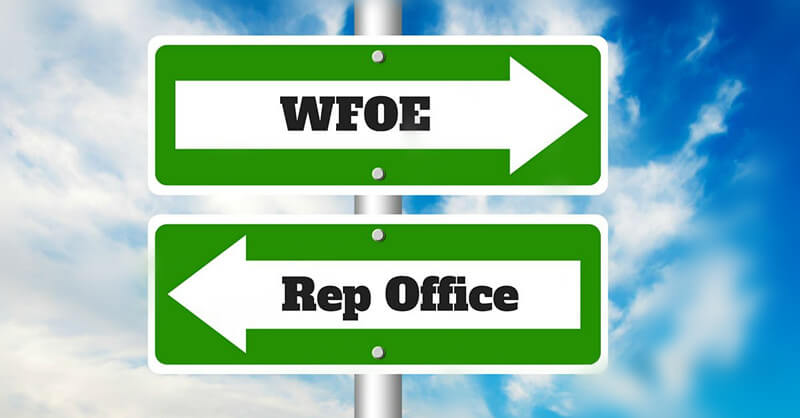Many foreign companies making investment in China are often faced with such questions-What are differences for China Rep Office and WFOE in respect of tax treatment, banking services, employment, functions & roles, establishment processes and conditions? Which one is more suitable for my company?

Representative Office is referred to as RO or Rep Office. Wholly Foreign Owned Enterprise is referred to as WFOE or WOFE. Below, we focus on the differences between China Rep Office and WFOE.
China Rep Office and WFOE are the mainstream ways for foreign companies to set up business organizations within the territory of China(except for those in Hong Kong, Macao, and Taiwan), with the differences as follows:
I. Difference in Tax Treatment of China Rep Office and WFOE:

(I) The taxation of Rep Office is mainly divided into two categories:
China Rep Office established in China by foreign companies in the fields of services, trade and agent business (belonging to the Rep Office in common sense) is officially defined as follows: The foreign permanently-based Rep Office acts as go-betweens for the customers of their parent companies in the services of introduction and agent business or provide their parent companies and subsidiaries (except for companies directly appointing such resident representative office) with services , which cannot supply accurate data and vouchers such as contracts and agreements to make correct declarations on the income or permanently-based representative office which can provide certification documents to prove that it is engaged in self-employed trade instead of agency trade. Rep Offices of this category are not entitled to sign contracts and collect payment. They mainly focus on the market promotion and commercial liaison with the tax payable calculated based on their expenditures. The estimated rate of tax is approximately 10% of the expenditures.
China Rep Offices of foreign governments or non-profitable international organizations (NGO) in China, or Rep Office which can provide certification documents to prove that it is engaged in self-employed trade instead of agency trade, may apply for tax exemption after obtaining tax exemption approval from the tax office.
(II) Taxes for WFOE:
Tax of WFOE is identical to that of the ordinary domestic-funded companies, to be levied based on the current tax policies of China, usually subject to a VAT of 17%, income tax of 25%, as well as other taxes.